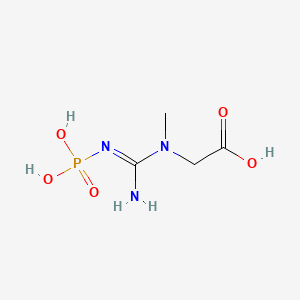Creatine Kinase Reaction Mechanism

Further evidence about the role of the essential thiol group in relation to the mechanism of action.
Creatine kinase reaction mechanism. Creatine kinase catalyzes the near equilibrium reaction transferring a phosphoryl group between atp and creatine without loss of free energy. Creatine cr and its analog phosphocreatine pcr are naturally occurring compounds found in human tissues. Properties and reaction with iodoacetamide of adenosine 5 triphosphate creatine phosphotransferase from human skeletal muscle. Found in all vertebrates creatine kinase catalyzes the reversible reaction of creatine and atp forming phosphocreatine and adp.
Creatine kinase ck also known as creatine phosphokinase cpk or phosphocreatine kinase is an enzyme ec 2 7 3 2 expressed by various tissues and cell types ck catalyses the conversion of creatine and uses adenosine triphosphate atp to create phosphocreatine pcr and adenosine diphosphate adp. Phosphocreatine may be viewed as a reservoir of high energy phosphate which is able to supply atp the primary energy source in bioenergetics on demand. Found in all vertebrates creatine kinase catalyzes the reversible reaction of creatine and atp forming phosphocreatine and adp. Phosphocreatine may be viewed as a reservoir of high energy.
Both compounds play an important role in energy metabolism in skeletal muscle through participation in the creatine kinase ck reaction. Phosphocreatine pcr magnesium mg adenosine 5 diphosphate adp h creatine mg atp.

